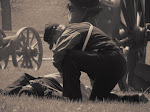Lord Robert of Huntington House
Volume One-Episode One
Lord Robert had not been in the drawing room for long when his partner finally arrived. His entrance was dramatic, as always, with a quick and loud incoming followed by the deep swoop of a gentlemens bow. When he had replaced his hat and recited his salutation, Lord Robert was able to express the desired actions and procedures in the situation soon to follow.
“Enrique, you know my desires and wishes I have spoken to you of. But you have not taken my instructions to mean anything to your state of affairs. I had instructed you on our previous visit to promptly receive the messages awaiting me at La Bojou, and you returned to me in a state of utter drunkenness. I would have requested you presence at my estates then, yet you insisted that you were ever faithful to me and my household, and on no other occasion would present yourself to me such as you were at that moment. I will now give you one more chance to show your loyalty. But if you throw it away as you did before, and dishonor me, and yourself, I will be in a state of abject disgust, and you will be dismissed from my services, and your name will be of little meaning to the king other than one who was disloyal to the country.”
“As I have assured you before, lord, it was in a wretched state I before presented myself in, and repented heartily to my good lord and the king. I wish will all of my heart to serve you in the most optimal way I can, and whatever you lordship requires will be done in a most honorable procedure. My lord will no longer be disappointed in my actions.”
Here Enrique bowed slightly in respect of Lord Robert, and waited for his reply. Lord Robert just took to his chair and continued his cigar in a most relaxed form.
“I have all confidence in you, you know, and trust you wont do wrong. You know yourself that I would follow the more active side of life to a greater extent if my business did not prolong my office hours. I am not old, nor too young, to comply to the endeavors of my hearts desire. I am a young Lord who will serve mankind in the most suitable fashion the king desires, and put myself at his disposal. Now, in this next undertaking, you must abide by the kings rules of secrecy at all costs, which I assume you already understand and remember. But I will take the due amount of time to refresh you for absolute safety in this matter. Item one, you are not to reveal your identity or that of your employers at all costs. Item two, you are to follow the directions given you to the fullest. Item three, you are to refrain from violence if at all possible, and refer to a friendly treaty or agreement if the occasion should arise. Item for, if you are with an accomplice, you are not to compromise the life of him, whether or not he has given you consent. You agree with the afore said regulations?
“My lord, as always.”
“Then I will proceed with the instructions. You are to travel toe the town of Jeromme, and there procure the letter that has been slowly making its way to me, beginning in La Bojou itself. Then report to my dear friend Jean Romorre, and give him possession of the article. You are not to skip the last step of the mission at any cost. Make sure of that.”
“But, my lord, it would make more sense if I just returned here and gave it to you, who it is meant for.”
“Enrique, I repeat myself. You are not to skip the last step of the mission at any cost. You recall in the contract of service you signed that you were to follow instructions to the givers precise meaning, and you will fulfill that agreement if your life depends on it. I expect this from you, and if it is not put to action in you missions, you will be exempt from my services. Understood?
“Yes, my lord. It is understood. I will proceed in all speed for Jeromme.”
As soon as Enrique had left and Lord Robert had regained his former attitude of disinterest, he decided to wait no longer in his slothfulness. He rose, went to the north facing wall of his immense drawing room, and tapped in a strange pattern on the right corner near the rug. Waiting, he put his ear to it and listened with a look of inquisition. Yet, as always, it did not fail to slide open to reveal his inner chamber, reserved for his duties to king and country. Not n office, but warehouse of supplies-weapons, disguises, maps, riding equipment, books to aid his assignments, and various other various things to assist him in his capers. From the dark opening cold breeze made Lord Robert stiffen and tighten his wrappings. Into the light of his drawing room emerged the cloaked form of a man, whom he recognized immediately. “Jean, are the horses and supplies ready for our journey?”
“My lord, they are ready for our disposal. Shall we away now?”
“Yes, let us.” And with that, the two retreated into the chamber to the exit from the passage.



